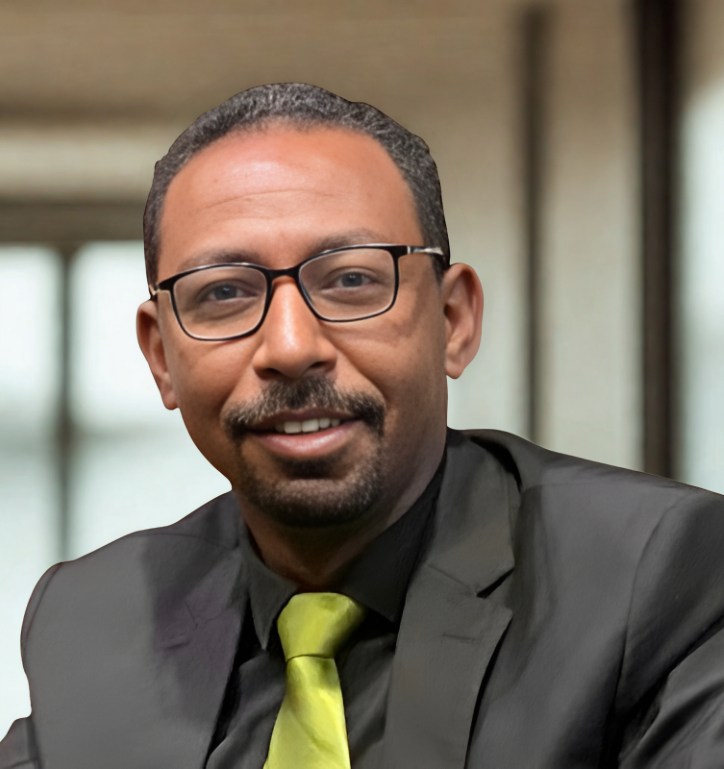Dr. Amgad Fareid Eltayeb
Amgad Fareid Eltayeb is a Sudanese politician, researcher, writer, and activist. He combines academic rigour with moral urgency. Lifelong commitment to truth-telling in the face of authoritarian violence, belief in citizen agency, and refusal to separate humanitarian imperatives from politics and power have defined his career. His training as a medical doctor was supplemented by postgraduate training in public health and research methods. He was one of the leading Sudanese revolutionaries that brought the December 2018 revolution to a triumph in toppling the Islamist regime of Omer Elbashir (1989 – 2019). After that, he worked as Assistant Chief of Staff to the Sudanese Prime Minister (2019–2021), where he helped the fragile democratic transition after decades of authoritarianism. Later, he worked as a political advisor to the UN political mission to Sudan (UNITAMS) following the October 2021 military takeover. Currently he is the executive director of Fikra for Studies and Development, a non-partisan Sudanese think tank.
His intellectual contributions are vast. He has written extensively on Sudan’s militarization, state institution breakdown, external actors’ role in the war, and the urgent necessity for civilian dominance and rule of law. His analyses are rooted in the global political theory and practices, drawing inspiration from Hobbes, Marx, Weber, and Rousseau—but are never abstracted from Sudanese reality. Instead, they reveal the country’s spiral into calamity and sketch the difficult, necessary paths back to justice. His analytically acute and literary style stresses that political criticism must explain events and inspire morality.
His humanitarian concerns shape his politics. He has written and spoken forcefully about famine denial, the plight of Sudanese refugees, the courage of Sudanese women in the face of war, and the erosion of human dignity in times of violence. He also vocally criticizes attempts to ethnicize the Sudanese war. These interventions are neither sentimental nor technocratic; they treat humanitarianism not as charity but as a political horizon—the defence of life against systems of organized destruction. He also voiced strong critiques of the epidemiological maze that surrounds the conflict to use the war to settle political scores in Sudan and elsewhere.
Listen to Dominic and Dr Amgad Fareid Eltayeb examine how famine, foreign-backed armed groups, and political fragmentation are reshaping Sudan’s future, and read more about how civilian voices, democratic movements, and international responsibility will define the country’s path toward justice and stability.






2 Comments
Comments are closed.